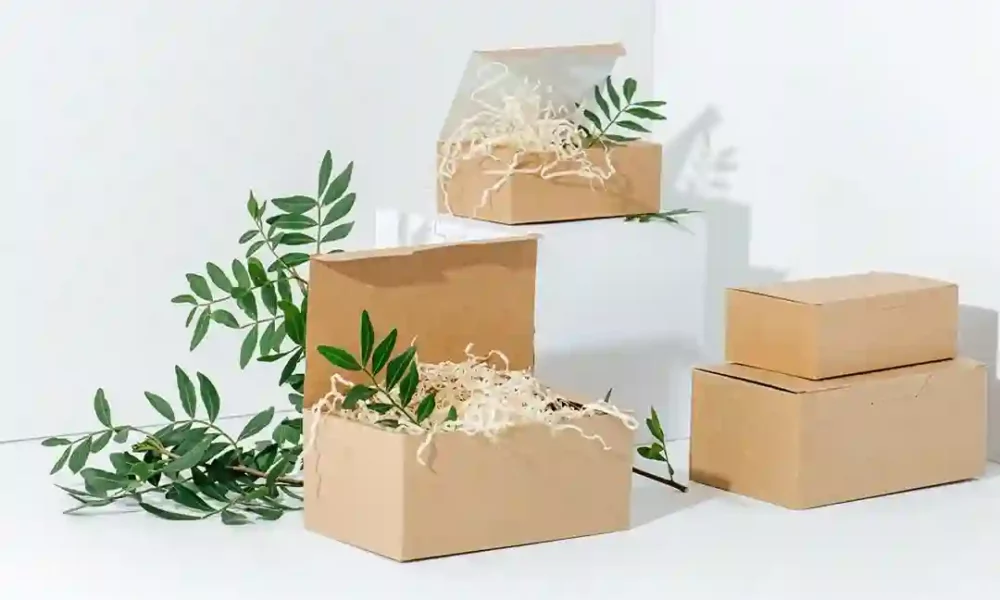
Environmentally-Friendly Packaging: Opting for a Greener Choice
In today’s world, finding sustainable solutions to protect Earth is more important than ever. And regarding packing, embracing environmentally-friendly alternatives is an important step towards reducing waste and minimising environmental impact. So, this article will explore all the advantages of choosing biodegradable packaging materials that prioritise the health of the planet, highlighting the advantages of opting for a greener choice that aligns with sustainable practices.
Embracing Earth-Friendly Packing
In an era where environmental concerns are at the forefront, it is crucial to adopt parcelling options that prioritise the well-being of our planet. By selecting packing materials designed to break down naturally, one can reduce the accumulation of waste in landfills and oceans. These innovative solutions provide a greener alternative that supports a more sustainable future.
Sustainable Solutions
Sustainable packing solutions are consciously crafted to minimise their impact on the environment. You can reduce your carbon footprint by utilising materials sourced from renewable resources, such as plant-based or compostable alternatives. These sustainable options are designed to decompose or be recycled, ensuring that they do not contribute to long-term environmental degradation.
Compostable Materials for a Circular Economy
Compostable materials play a crucial role in advancing the concept of a circular economy. These materials are designed to break down into natural elements through composting, enabling the nutrient-rich byproducts to be returned to the soil as valuable resources. So by opting for compostable packing materials, one actively participates in closing the loop of resource usage, reducing waste, and promoting a more sustainable and regenerative system.
Renewable Resources: Harnessing Nature’s Potential
Packing solutions made from renewable resources offer an alternative to traditional materials derived from fossil fuels. Plant-based materials, such as those derived from agricultural waste or sustainable forestry practices, provide a greener choice. So by harnessing nature’s potential and utilising these renewable resources, one can reduce the reliance on finite resources and minimise the environmental impact associated with conventional materials.
Minimising Environmental Footprint
One of the key benefits of eco-friendly packaging is its ability to minimise the environmental footprint. Sustainable options often require fewer energy-intensive processes during manufacturing, resulting in reduced greenhouse gas emissions. Additionally, these materials decompose naturally, reducing the volume of waste that ends up in landfills or litters our ecosystems. So by choosing greener alternatives, you contribute to preserving the planet’s natural resources for future generations.
Preserving Biodiversity and Ecosystems
Traditional materials can pose significant threats to biodiversity and ecosystems. Plastic waste, for instance, harms wildlife and pollutes fragile ecosystems. And by embracing environmentally-friendly packaging alternatives, one can actively protect biodiversity and contribute to the preservation of delicate ecosystems. This proactive approach helps maintain the balance of the natural world, ensuring the survival of diverse species and the integrity of their habitats.
Consumer Influence and Sustainable Choices
Consumers have the power to drive positive change through their purchasing decisions. By consciously selecting products packaged in environmentally-friendly materials, they send a clear message to manufacturers and businesses about their preference for sustainable choices. And this demand for greener solutions encourages innovation and motivates the industry to adopt more sustainable practices, leading to wider availability of eco-friendly options.
In an era where sustainability is of utmost importance, choosing biodegradable packaging materials that prioritise the health of this planet is a significant step towards a greener future. By embracing environmentally-friendly alternatives, one can actively contribute to reducing waste, minimising environmental impact, and preserving biodiversity. Sustainable solutions, crafted from renewable resources and designed to decompose naturally, offer a greener choice that aligns with our collective responsibility to protect and nurture the planet. And together, people can safeguard the Earth with green options that support a more sustainable and environmentally-conscious future.